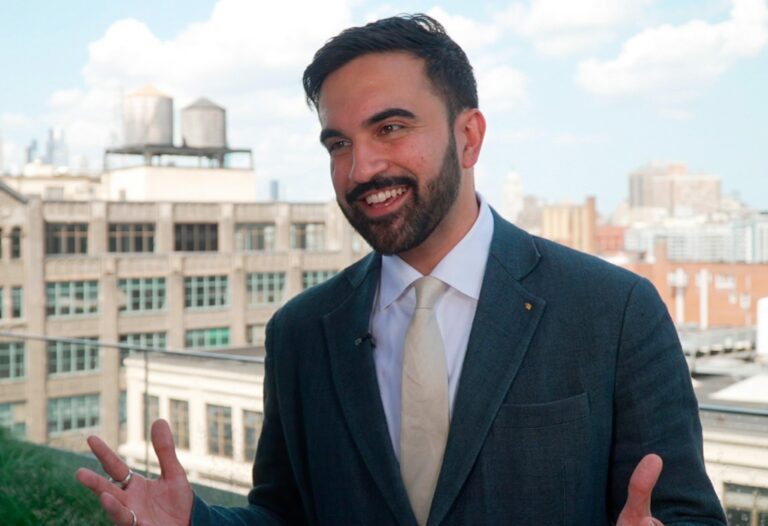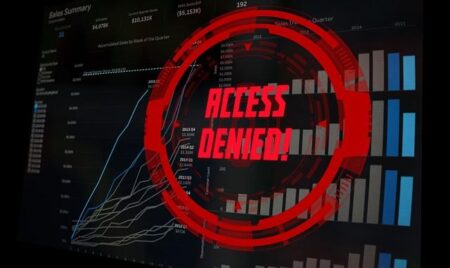As New York grapples with economic challenges and growing inequalities, the recent election of Zohran Mamdani has sparked widespread debate about the future direction of the city’s economy. Representing a new wave of progressive leadership, Mamdani’s policy proposals promise transformative change—but critics warn of potential risks to business confidence and investment. This article examines the possible impact of Zohran Mamdani’s tenure on New York’s economic landscape,exploring whether his approach will boost growth and equity or hinder the city’s recovery efforts.
Zohran Mamdani’s Economic Vision for New York City
Zohran Mamdani approaches New York City’s economic challenges with a bold vision, emphasizing equity and sustainability as cornerstones for growth. He advocates for increased investment in affordable housing and community-led development to ensure that economic prosperity reaches all boroughs, particularly underserved areas. Mamdani prioritizes green jobs and renewable energy projects, positioning them as dual solutions to the city’s unemployment crisis and environmental concerns. His economic blueprint also highlights the need to resist aggressive gentrification, aiming to preserve local businesses and prevent displacement.
Critics argue this approach could slow down conventional business expansions and deter large-scale investments, pointing to potential risks in overregulating industries and increasing taxation on the wealthy. Supporters counter that Mamdani’s policies foster a more inclusive economy by addressing systemic disparities, including disparities in wages and access to capital. His platform includes:
- Expanding worker cooperatives and union support.
- Implementing a city-level wealth tax for funding public programs.
- Enhancing public transportation infrastructure to stimulate job accessibility.
| Policy Area | Expected Impact |
|---|---|
| Affordable Housing | Increase availability,reduce displacement |
| Green Job Programs | Job creation in new sectors,environmental benefits |
| Wealth Tax | Revenue for social programs,potential business pushback |
Potential Benefits of Progressive Policies on Local Businesses
By advocating for progressive policies,Zohran Mamdani emphasizes support for small and local businesses that often struggle to compete against large corporations. Measures such as increased minimum wages and expanded worker protections could enhance employee morale and purchasing power, perhaps leading to a more vibrant and equitable local economy. Additionally, investment in community development and public infrastructure may create a more attractive business surroundings, fostering innovation and entrepreneurship among diverse local enterprises.
Critics argue these policies might increase operational costs, but proponents highlight benefits including:
- Stronger consumer bases: Improved wages can translate into higher local spending.
- Increased job stability: Worker protections reduce turnover, lowering hiring and training costs.
- Community reinvestment: Funds channeled into neighborhood development can boost foot traffic and sales.
| Policy Aspect | Expected Impact on Local Businesses |
|---|---|
| Higher Minimum Wage | Increased consumer spending,potential short-term cost adjustments |
| Expanded Worker Protections | Improved retention and reduced operational disruptions |
| Community Investment | Enhanced local infrastructure,broader customer base |
Challenges and Criticisms Surrounding Mamdani’s Approach
Critics argue that Mamdani’s progressive economic agenda risks alienating key business stakeholders essential for New York’s recovery. His push for increased regulation, higher taxes on corporations, and expanded social programs may deter investment and slow job creation. Some economists warn that without careful calibration, such policies could lead to unintended economic contraction, particularly at a time when the city is still rebounding from pandemic-induced challenges.
Additionally, questions surround the feasibility of implementing Mamdani’s policies within the intricate fabric of New York’s political environment. Skeptics highlight concerns such as:
- Resistance from entrenched political interests and the real estate lobby
- Potential for increased bureaucracy hindering efficient program rollout
- Challenges in balancing progressive goals with fiscal responsibility
| Criticism | Potential Impact |
|---|---|
| Higher Corporate Taxes | Reduced business investments |
| Increased Regulation | Slower permitting processes |
| Expanded Social Spending | Pressure on city budget |
Strategies for Balancing Growth and Equity in New York’s Economy
New York’s economic future hinges on crafting policies that simultaneously foster robust growth and address longstanding equity gaps.Advocates emphasize targeted investments in underserved communities to ensure new job opportunities are accessible and sustainable. This includes expanding affordable housing initiatives and supporting small businesses through microloans and technical assistance programs. Equally crucial is the implementation of workforce development plans aimed at equipping residents with skills aligned to the city’s evolving industries,such as technology and green energy.
Policy-makers are also exploring innovative tax frameworks to balance fiscal growth with social responsibility. Incentivizing companies to share profits and adopt equitable pay scales could narrow income disparities without deterring investment. Below is a simplified overview of potential strategies and their projected impacts:
| Strategy | Impact on Growth | Impact on Equity |
|---|---|---|
| Affordable Housing Expansion | Moderate | High |
| Workforce Development | High | High |
| Progressive Tax Incentives | Moderate | Moderate |
| Small Business Support | High | Moderate |
- Cross-sector collaboration leveraging government, private sector, and nonprofits to maximize resource allocation
- Data-driven monitoring to measure both economic and social outcomes, ensuring accountability
- Community engagement to align development plans with local needs and priorities
Key Takeaways
As Zohran Mamdani steps into a prominent role within New York’s political landscape, the impact of his policies on the city’s economy remains to be seen. His progressive agenda promises significant changes, appealing to some as a necessary shift while raising concerns among others about potential risks to business and growth. Ultimately, the coming months and years will reveal whether Mamdani’s approach will help revitalize New York’s economy or present new challenges for the city’s financial future.




